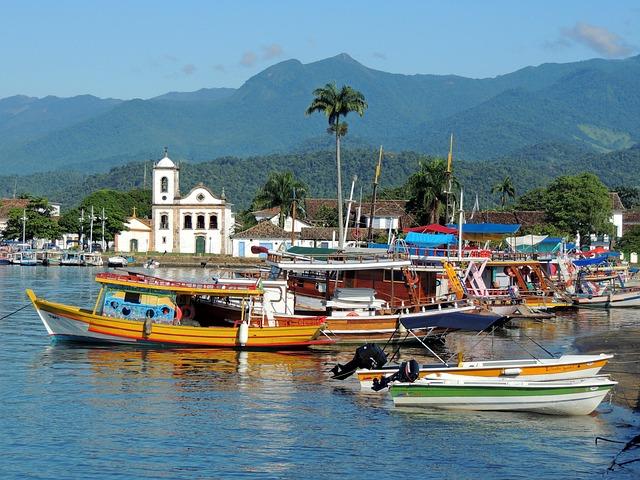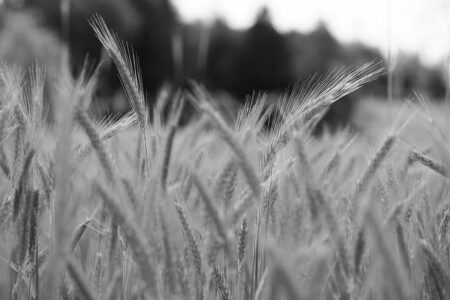As Brazil prepares to host the highly anticipated COP30 climate summit, the global spotlight intensifies on the South American nation’s environmental track record. Once lauded for its vast rainforests and rich biodiversity, Brazil now faces mounting scrutiny over rising deforestation rates and environmental policies that critics argue undermine conservation efforts. This article explores the paradox of Brazil’s role on the climate stage: is it a committed climate champion leading the fight against global warming, or a nature foe whose actions threaten the very ecosystems it vows to protect?
Brazil’s Environmental Record Under Scrutiny Amid Global Climate Expectations
Brazil’s environmental stewardship is under heightened global scrutiny as the nation steps onto the world stage to host COP30. While lauded for its vast natural riches, including the Amazon rainforest-often dubbed the “lungs of the planet”-questions linger about the country’s commitment to sustainable policies. Recent years have seen a worrying acceleration in deforestation rates, fueled by agricultural expansion and illegal logging, challenging Brazil’s climate promises. Critics argue that although the government pledges to reduce carbon emissions and protect biodiversity, enforcement gaps and contradictory economic incentives create a complex paradox between development and conservation.
Data emerging from environmental watchdogs and international bodies highlight several critical factors shaping Brazil’s dual role in global climate efforts:
- Deforestation Trends: Despite international agreements, over 10,000 km2 of forest cover was lost last year alone.
- Climate Legislation: Mixed signals with recent rollbacks on environmental protections contrasted by ambitious emission reduction targets.
- International Cooperation: Increasing partnerships are in place but face domestic political and economic challenges.
| Year | Deforestation Rate (km2) | CO2 Emission Targets (%) | Protected Areas (%) |
|---|---|---|---|
| 2021 | 11,088 | -43% by 2030 | 46 |
| 2022 | 10,129 | -50% by 2035 | 47 |
| 2023 (est.) | 10,500 | -55% by 2040 | 48 |
Balancing Economic Growth and Rainforest Preservation Challenges and Opportunities
Brazil stands at a crossroads, struggling to harmonize its economic aspirations with the urgent need to safeguard the Amazon rainforest. The nation’s rich biodiversity and vast natural resources have long been a cornerstone of its economic development, particularly through agriculture, mining, and logging. Yet, these industries often come at a steep environmental cost. The challenge lies in promoting sustainable growth without accelerating deforestation, a delicate balance that the government and private sector must navigate carefully. With global scrutiny intensified by COP30, Brazil faces pressure to implement concrete policies that encourage green investments and curb illegal land clearing, while ensuring that local communities dependent on the forest are not marginalized.
Opportunities abound in adopting innovative solutions, such as expanding renewable energy projects and boosting eco-tourism, which can serve as economic engines aligned with conservation goals. International cooperation and carbon credit markets also provide financial incentives to preserve these vital ecosystems. However, the path forward is riddled with conflicting interests, necessitating a multi-stakeholder approach. Key factors for successful balance include:
- Strengthening enforcement against illegal deforestation and land grabs
- Promoting sustainable agriculture practices that reduce environmental footprints
- Empowering Indigenous communities as guardians of the rainforest
- Investing in green technology and infrastructure to drive low-carbon growth
| Sector | Potential Impact | Opportunity |
|---|---|---|
| Agriculture | Moderate deforestation risk | Agroforestry & sustainable ranching |
| Mining | High environmental pressure | Strict regulations & rehabilitation |
| Renewable Energy | Low ecological footprint | Solar, wind & biomass projects |
| Eco-tourism | Supports conservation efforts | Community-led tourism initiatives |
Policy Recommendations for Brazil to Lead by Example in Climate Action and Biodiversity Protection
To position itself as a true leader in global climate governance, Brazil must prioritize robust enforcement of existing environmental laws and enhance transparency in reporting deforestation and carbon emissions. Strengthening Indigenous land rights is critical-not only does it safeguard biodiversity hotspots, but it also empowers communities at the frontline of conservation efforts. Moreover, investing in sustainable agricultural practices can reduce Brazil’s ecological footprint while supporting rural livelihoods, creating a scalable model for other nations with vast natural resources.
Policy interventions should also include a comprehensive approach to balancing economic development with ecological preservation. This encompasses expanding protected areas, incentivizing low-impact infrastructure projects, and establishing a nationwide carbon pricing mechanism. The table below outlines key policy levers and their immediate impacts, designed to help Brazil recalibrate its environmental trajectory in alignment with international climate commitments.
| Policy Lever | Expected Impact | Implementation Priority |
|---|---|---|
| Enhanced Law Enforcement | Reduced illegal deforestation | High |
| Indigenous Land Demarcation | Preserved biodiversity & cultural rights | Urgent |
| Sustainable Agriculture Incentives | Lower emissions, resilient food systems | Medium |
| National Carbon Pricing | Accelerated emission reductions | High |
| Infrastructure Impact Assessments | Balanced growth with ecological safeguards | Medium |
To Conclude
As Brazil takes center stage hosting COP30, the nation faces intense scrutiny over its dual role as both guardian and exploiter of the Amazon and other vital ecosystems. While the country’s commitment to addressing climate change is under the global spotlight, ongoing challenges such as deforestation, agricultural expansion, and policy inconsistencies continue to raise questions about its environmental stewardship. Ultimately, Brazil’s actions during and beyond the summit will determine whether it can truly be regarded as a climate champion or remains entangled in the contradictions that make it a nature foe. The world will be watching closely.




